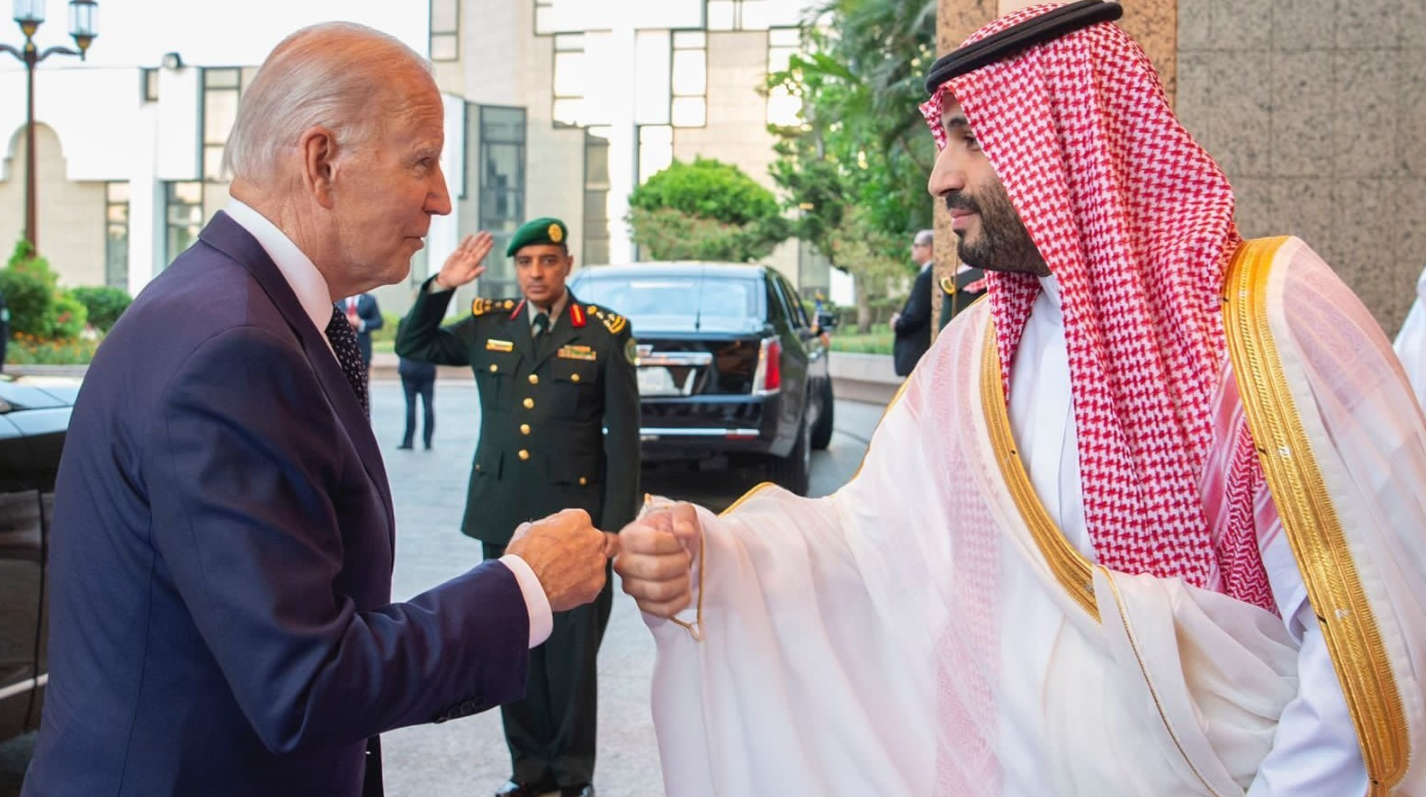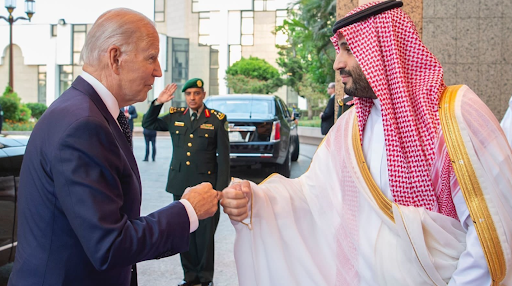
Saudi-UAE Rift Deepens--A Regional Power Struggle with Global Implications
A dramatic escalation between Saudi Arabia and the United Arab Emirates (UAE) has laid bare the fractures within the once-unified Gulf coalition, revealing a deepening strategic schism over influence in Yemen—and, by extension, the broader Middle East. The latest trigger came on December 30, 2025, when Saudi Arabia launched airstrikes on the Yemeni port of Mukalla, targeting vessels it alleges were carrying weapons from the UAE destined for separatist militias. Simultaneously, Riyadh issued a 24-hour ultimatum demanding the UAE withdraw all military forces from Yemen and cease financial and logistical support to factions operating within the country.
The implications of this confrontation go far beyond Yemen’s fragile borders. They expose the UAE’s increasingly assertive—and often destabilizing—foreign policy, fueled by vast petro-wealth and an ambition to project power disproportionate to its small geographic size and population. More critically, they spotlight the contradictions at the heart of the Emirati state: a gleaming global city built on the backs of a disenfranchised foreign workforce, ruled by a hereditary elite that constitutes just 14% of the population, while the rest—millions of expatriates—are denied basic civil and political rights.
The Yemen Flashpoint
Yemen has long been the proving ground for Gulf rivalries, but the Saudi-UAE split has now reached a breaking point. While both nations ostensibly joined forces in 2015 under the banner of the “Arab Coalition” to restore Yemen’s internationally recognized government, their objectives diverged sharply over time. Saudi Arabia prioritized border security and countering Houthi influence, while the UAE invested heavily in southern separatist groups like the Southern Transitional Council (STC), viewing a fragmented Yemen as strategically advantageous.
Recent developments confirm Saudi Arabia’s worst fears. The STC, with evident Emirati backing, has seized large swaths of land in Hadhramaut and Al-Mahra—governorates adjacent to Saudi territory. Riyadh interprets this not as a local power grab but as a direct threat to its national security. The Saudi Foreign Ministry’s unusually blunt language—calling UAE actions “extremely dangerous” and “incompatible with the foundations of the coalition”—signals a dramatic rupture in bilateral trust.
Yemen’s Presidential Leadership Council, under President Rashad al-Alimi, responded by declaring a 90-day state of emergency, revoking a security agreement with the UAE, and imposing a comprehensive blockade on ports and crossings. These measures underscore the extent to which Emirati interference is now seen as an existential threat to Yemeni sovereignty—even by a government that once welcomed UAE support.
The UAE’s Destabilizing Regional Ambitions
The Yemen crisis is not an isolated case. The UAE has consistently leveraged its financial might to back proxy forces across the region—often in defiance of international law and regional stability:
Sudan: The UAE has been accused by the UN and Western intelligence agencies of supplying weapons to the Rapid Support Forces (RSF), intensifying the brutal civil war that has killed tens of thousands and displaced millions. Abu Dhabi sees the RSF as a counterweight to Islamist and Turkish influence, but its intervention has prolonged and deepened the conflict.
Libya: The UAE openly backed Khalifa Haftar’s Libyan National Army (LNA) in its failed 2019 assault on Tripoli, providing drones, air support, and mercenaries. Its actions contradicted UN arms embargoes and undermined diplomatic efforts to unify the country.
Somalia: Emirati military presence in Berbera and its port investments have fueled tensions with the Somali federal government, which accuses Abu Dhabi of undermining national sovereignty and cultivating separatist sentiment in Somaliland.
This pattern reveals a consistent Emirati strategy: exploit regional chaos to install pliable local actors, secure strategic ports and military bases, and project influence far beyond its borders—all while avoiding democratic accountability at home.
A Domestic System Built on Exclusion
The UAE’s aggressive external posture is mirrored by a deeply hierarchical internal order. Despite hosting over 9 million foreign workers—many of whom have lived and labored in the country for decades—they are systematically denied pathways to citizenship, political representation, or even basic labor protections. Human rights organizations have long documented systemic abuses: wage theft, passport confiscation, unsafe working conditions, and the absence of collective bargaining rights.
Meanwhile, the Emirati citizen elite—roughly 14% of the population—enjoy immense privileges, including state-funded housing, education, and employment guarantees. This de facto caste system is rarely scrutinized due to the UAE’s carefully cultivated image as a modern, tolerant hub. Yet beneath the skyscrapers and luxury malls lies a rigid social contract: obedience in exchange for wealth, with dissent tolerated only when it comes from the palace, never the pavement.
The Danger of Emirati Supremacism
What makes the UAE’s regional behavior particularly alarming is its ideological underpinning. Unlike Iran or Turkey, whose regional ambitions are framed in religious or civilizational terms, the UAE promotes a form of Gulf-centric supremacism: the belief that small, oil-rich monarchies have the right—and duty—to shape the political destiny of larger, poorer nations through coercion, patronage, and covert warfare.
This worldview is not merely opportunistic; it is imperial in spirit. And it thrives in the absence of accountability. While Saudi Arabia, despite its own human rights record, is increasingly aligning with international diplomatic frameworks the UAE remains defiantly opaque, operating through shadowy networks of private military contractors, offshore finance, and media manipulation.
A Turning Point?
The Saudi ultimatum may mark a historic inflection point. For years, Abu Dhabi skillfully played Riyadh and Washington against each other, presenting itself as a reliable counterterrorism partner while quietly undermining Saudi interests in Yemen and beyond. But with Saudi Arabia now asserting red lines and Yemen’s government turning against its former Emirati patrons, the UAE risks diplomatic and strategic isolation.
More importantly, this crisis could force a long-overdue reckoning with the UAE’s role in the region. If the world continues to treat Abu Dhabi as a benign economic hub while ignoring its role in fueling wars in Sudan, Libya, and Yemen, it will only embolden further adventurism. The cruelty of the Emirati model—both at home and abroad—must no longer be excused by its skyscrapers or sovereign wealth funds.
Saudi Arabia’s warning is clear: destabilization has consequences. Whether the UAE heeds it—or doubles down—will determine not just the fate of Yemen, but the future balance of power in the entire Middle East.
Updated: UAE claims it is ending its presence in Yemen
UPDATE:
In an official statement released by the United Arab Emirates' Ministry of Foreign Affairs, the UAE expressed "deep regret" over statements made by Saudi Arabia over the Saudi airstrike on Yemen’s Mukalla port, calling for restraint and warning against further escalation between the two Gulf partners. The UAE also rejected claims that the targeted shipment included weapons and denied that it was supplying arms to local factions.
The statement further reads:
"The Ministry affirms that the shipment in question did not contain any weapons, and the vehicles unloaded were not intended for any Yemeni party but were shipped for use by UAE forces operating in Yemen."


































































